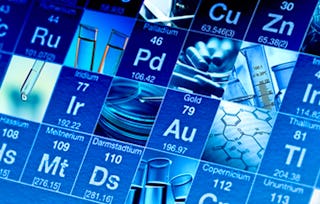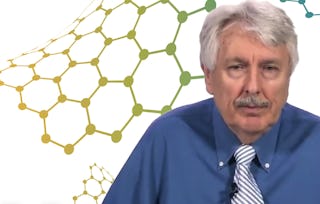Periods of our civilization have names associated with materials – stone age, bronze age, iron age and the silicon age. Materials impact all aspects of your daily life and will continue to do so in the future. The more we understand materials, the more we imagine the future with fantastic devices and advancements enabled by materials. This initial specialization introduces a limited number of material science and engineering concepts. The topic presentations are at the concept level without being mired in heavy mathematics. Participation in each course is best done by initially having a firm sense of what MSE does and its impact on society. Topics in this specialization span from atom bonding and crystal structure to diffusion and phase diagrams. Some of the position titles that may benefit from this course include Materials Engineer, Chemical Engineer, Electrical Engineer, Aerospace Engineer and Materials Quality Control. Others who want to explore the world of materials will find it helpful.

Introduction to Materials Science
Seize the savings! Get 40% off 3 months of Coursera Plus and full access to thousands of courses.

Introduction to Materials Science
This course is part of Materials Science for Technological Application Specialization

Instructor: Terry Alford
15,635 already enrolled
Included with
218 reviews
Recommended experience
What you'll learn
The role of materials engineers in contemporary engineering practice.
Details to know

Add to your LinkedIn profile
See how employees at top companies are mastering in-demand skills

Build your subject-matter expertise
- Learn new concepts from industry experts
- Gain a foundational understanding of a subject or tool
- Develop job-relevant skills with hands-on projects
- Earn a shareable career certificate

There are 6 modules in this course
Earn a career certificate
Add this credential to your LinkedIn profile, resume, or CV. Share it on social media and in your performance review.
Instructor

Offered by
Explore more from Mechanical Engineering
 Status: Free Trial
Status: Free TrialArizona State University
 Status: Preview
Status: PreviewShanghai Jiao Tong University
 Status: Preview
Status: PreviewGeorgia Institute of Technology
 Status: Preview
Status: PreviewGeorgia Institute of Technology
Why people choose Coursera for their career

Felipe M.

Jennifer J.

Larry W.

Chaitanya A.
Learner reviews
- 5 stars
81.65%
- 4 stars
11.92%
- 3 stars
3.66%
- 2 stars
1.37%
- 1 star
1.37%
Showing 3 of 218
Reviewed on Dec 18, 2024
great for fundamental knowledge in the first step of learning materials science
Reviewed on Nov 14, 2024
I enjoyed learning new things about materials science, and the professor was very knowledgeable, with clear and understandable explanations. Thank you for this valuable educational opportunity.
Reviewed on Aug 3, 2025
Best Course for Beginners in The Material Science...

Open new doors with Coursera Plus
Unlimited access to 10,000+ world-class courses, hands-on projects, and job-ready certificate programs - all included in your subscription
Advance your career with an online degree
Earn a degree from world-class universities - 100% online
Join over 3,400 global companies that choose Coursera for Business
Upskill your employees to excel in the digital economy
¹ Some assignments in this course are AI-graded. For these assignments, your data will be used in accordance with Coursera's Privacy Notice.

